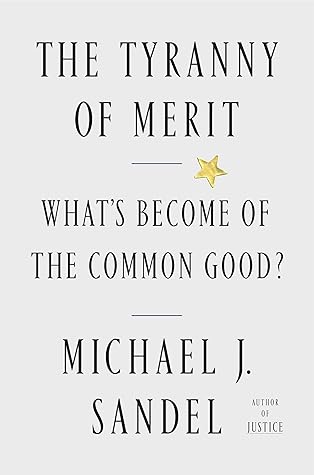More on this book
Community
Kindle Notes & Highlights
Read between
September 25 - September 26, 2021
The credentialist prejudice is a symptom of meritocratic hubris.
Most differences in income “are due to the fact that society has invested far more in developing some people’s talents than others and that it puts very unequal amounts of capital at the disposal of each worker. Productivity attaches mainly to work roles, not to individuals.”
The nation did not need more students going to college, Conant thought; it needed better ones.
The hereditary aristocracy of white, Anglo-Saxon, Protestant wealth that Conant sought to displace no longer predominates. Women are admitted on equal terms with men, colleges actively recruit for racial and ethnic diversity, and about half of today’s Ivy League students identify themselves as students of color.
employers have faith in the sorting function these colleges perform and value the meritocratic honor they bestow.
It would be a mistake to think that higher education is solely responsible for the inequalities of income and social esteem we witness today. The project of market-driven globalization, the technocratic turn of contemporary politics, and the oligarchic capture of democratic institutions are all complicit in this condition.
for the most part, our leading colleges and universities today are better at inculcating technocratic skills and orientations than the ability to reason and deliberate about fundamental moral and civic questions.
Civic education can flourish in community colleges, job training sites, and union halls as well as on ivy-strewn campuses. There is no reason to suppose that aspiring nurses and plumbers are less suited to the art of democratic argument than aspiring management consultants.
One of the reasons mainstream pundits and politicians were shocked and perplexed by Trump’s election is that they were oblivious to (and in some cases complicit in) the culture of elite condescension that had been building for some time.


